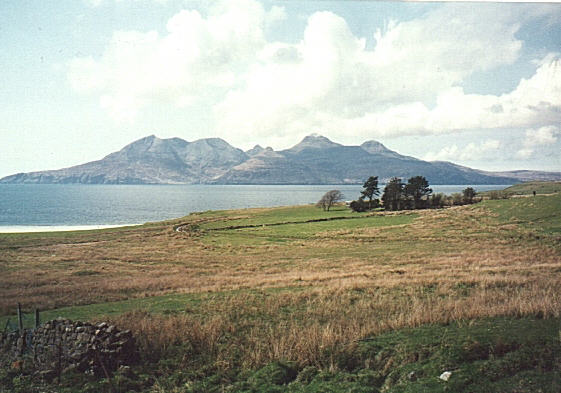
Away MAVE
The Distance Mode of MA in Values and the Environment at Lancaster University
412 Philosophy of Conservation in Practice
Module Description
Home![]() |
|![]() Aims
and Outcomes
Aims
and Outcomes![]() |
|![]() Module
Description
Module
Description![]() |
|![]() Tutor
Details
Tutor
Details![]() |
|![]() Biblio
Biblio![]() |
|![]() Assessment
Assessment![]() |
|![]() Resources
Resources![]() |
|![]() Discussion
Discussion
 Combine
fabulous scenery, natural, social and archeological interest with professionally
led talks and discussions about the ethical issues that arise from our
relationships with the natural world…. add hill-walking, bird-watching
and big open fires and you have the Rum Trip.
Combine
fabulous scenery, natural, social and archeological interest with professionally
led talks and discussions about the ethical issues that arise from our
relationships with the natural world…. add hill-walking, bird-watching
and big open fires and you have the Rum Trip.
This module seeks to complement and develop themes from the other MAVE modules and the Ecology, Conservation and Culture module of the MA Environment, Culture and Society, in a number of relevant practical settings. Specifically, it will (a) seek to establish what the aims and objectives of a range of conservation organizations are, and, (b) subject these aims and objectives, and the rational behind conservation, to critical scrutiny and debate. Because much of this work will be done on site, the module will allow the pursuit of these aims to a depth and detail that would not be possible in the classroom.
Approach
The module will be built around a field trip, and taught
intensively over the course of one week. The trip will include visits
to, usually, at least three different conservation sites in England and
Scotland. Local site managers/rangers will provide, alongside staff from
the Institute, guided tours of the sites, explanation of site policy and
opportunities for discussion and debate. An extended stay of several days
on a Scottish Natural Heritage site - the Isle of Rum - will allow opportunity
to explore conservation policy and practice in considerable depth, to
make comparisons with other sites and to develop ideas for written work.
The intensive nature of the course will be particularly helpful for those
students studying by distance learning, providing an excellent opportunity
for them to meet and exchange ideas with other students and staff.
A further feature of this module is that it will also be open to conservation
professionals, who will receive a certificate on completion of the field
trip. Students will thus gain immeasurably from the contributions and
experience of practising conservationists to the seminars and discussions,
and particularly from the opportunity to explore an even wider range of
conservation practices and case studies than can be provided by the site
visits.
There will also be two 'indoor' sessions at Lancaster University, one
before and one after the field trip.